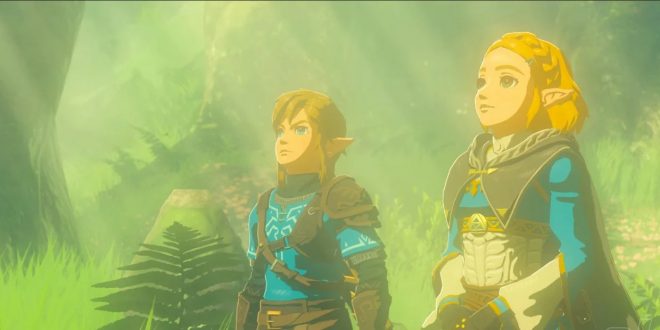Many timeline theories existed before The Legend of Zelda: Tears of the Kingdom’s release earlier this year. It follows Breath of the Wild, but how does it compare to Ocarina of Time or A Link to the Past?
TOTK did not answer well. In this Hyrule, references to other games are vague. We wanted the game’s producer and director, Eiji Aonuma and Hidemaro Fujibayashi, to explain the series’ chronology. Our mistake.
Two Zelda legends discussed how the development team handles timeline questions early on in a Game Informer interview. Fujibayashi made an interesting comment about how important the Zelda timeline is to those developing it, but neither could say where TOTK fit in. The answer? Apparently not much.
we realized that fans have a great time theorizing and enjoy thinking about where things fit on the timeline. That’s something that the development team recognizes and it considers, but to an extent. And I say, “to an extent” because if we get too into the weeds or too detailed in that placement, it results in kind of creating restraints for our creativity; the process of creating new ideas becomes restricted because we’re so tied up and trying to make this fit into a very specific spot in the timeline. We do consider it, but not to an extent where we feel that our development process feels restricted or constrained.
This seems fair overall. Very few Zelda games string naturally from one to another, and forcing a new entry into a pre-existing gap could mean we players miss out on some sweet game design—if TOTK was built to come before a certain title, Ultrahand or Ascend would stand out as breaking the chronology.
The Zelda timeline is rarely clear, but Skyward Sword comes first. The game shows Hyrule’s creation, Demise’s curse, and reincarnation cycle, but where do TOTK’s flashbacks fit in? Are the Zonai before or after “the beginning” of the game?
Game Informer asked Fujibayashi and Aonuma this question, and the former game gave a cryptic answer that left it up to us:
Obviously, there’s something a little bit clearer in our minds, but of course, it could be that we’re wrong as well! [Laughs] I kind of want to pose the idea that, like in real-life history, you define by the artifacts and by the data that you currently have. So within what we have, there might be a correct answer, but it could be a different answer. So, I guess my answer would be that it could be both. Both could be correct.
It’s nice to have free rein on these theories, but we want Fujibayashi’s order of events. They may be “wrong as well,” but it would be interesting, right?
The interview discusses the pair’s previous collaborations, Ocarina of Time’s 25th anniversary, and the team’s reluctance to return to Tears of the Kingdom. For more Zelda talk, visit Game Informer.
 Load the Game Video Games, Reviews, Game News, Game Reviews & Game Video Trailers
Load the Game Video Games, Reviews, Game News, Game Reviews & Game Video Trailers



